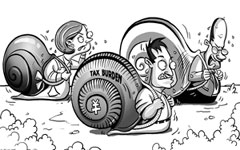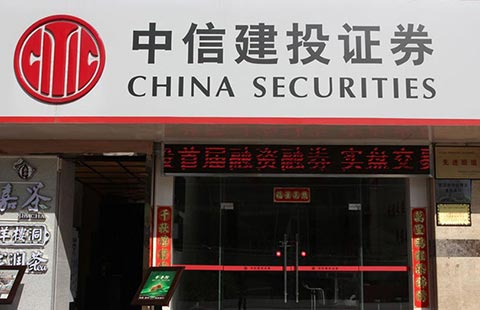Reform of tax system with B2V will result in winners and losers
By Wei Tian in Shanghai (China Daily) Updated: 2014-07-30 07:16As for B2V reform, a more influential move will be the expansion into the financial sector, Li said. The financial industry, construction industry, real estate industry and consumer service industry are the sectors left before B2V reform is complete.

|
Li said a draft plan for B2V reform in the financial sector may come out at the end of this year, and it will be implemented in the second half of 2015.
Another tax change that will lead to higher operating costs for companies involves the resource tax. Jia Kang, head of the Research Institute for Fiscal Science at the Ministry of Finance, said the reform is on the agenda this year, despite resistance from various parties.
Resource prices are expected to rise after the tax base is shifted from output to sales value. The resource tax on coal, for example, will be 10 times the current level, Jia wrote in a recent article.
A law covering environmental tax reform has been submitted to the National People's Congress, but there is no date for its official launch, Su Ming, deputy head of the Finance Ministry's research institute, said in a recent interview with Aastocks.com.
Last but not least, Lou said, local governments offer too many tax breaks to attract investment, and that practice is not in line with establishing a fair market and modern fiscal system.
In the future, local governments will need State Council (cabinet) approval for such tax breaks, he added.
- Animation and comic exhibition ends in Hong Kong
- Chinese antitrust agency looking into Microsoft
- Moody's upbeat on home sales
- Top 10 underwriters in China
- Baidu developing 'self-driving' car
- Malaysia Airlines faces fight for survival
- Housing market faces price corrections, says think tank
- 'Right talent' in short supply
















